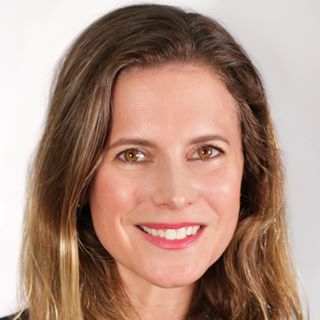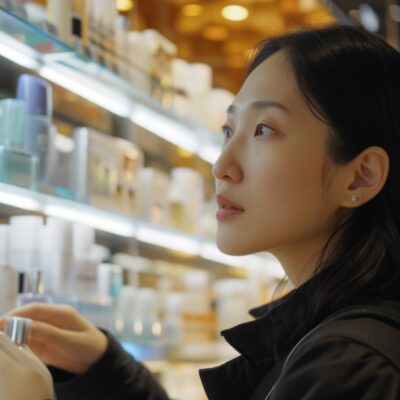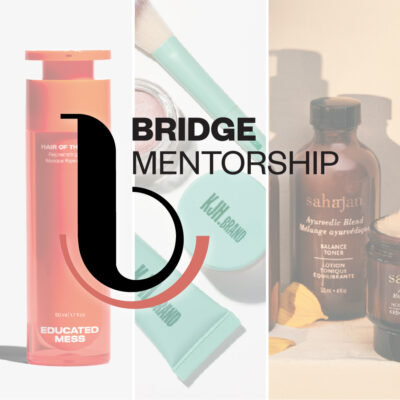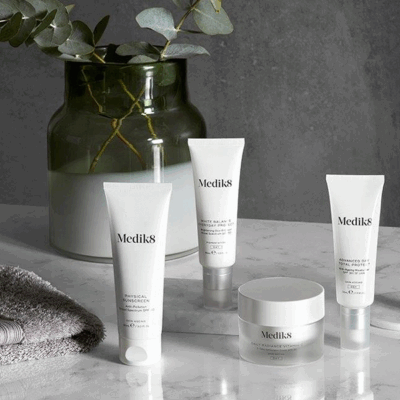
Indie Beauty Brands Share How They’re Trying To Reach Gen Z Consumers
In this edition of Beauty Independent’s ongoing series posing questions to beauty entrepreneurs, we ask 14 brand founders and executives: Have you shifted marketing efforts to reach gen Z?
- Katonya Breaux Founder, Unsun Cosmetics
We have shifted our marketing efforts to include gen Z because this group of people is pushing much of what's happening in our industry. When I look at brands that are doing very well and see who's pushing for the brand in ways that really stand out, I see this group of young people. Their loyalty and use of social media to spread the word about things they love is an asset. It is a mistake not to speak directly to this younger demographic.
- Selmin Karatas Co-Founder and CEO, Kazani
I am showcasing my products at pop-up stores in Manhattan, N.Y. Most of gen Z likes to get information online before they make a purchase, so I asked my customers to write online reviews. We are also switching to glass bottles and recycled plastic packaging. I added the TikTok app, and I also started working with local influencers.
- Katherine Parr Co-Founder, Parré Chocolat
I think gen Z as well as millennials have embraced the concept of conscious consumerism, which is something I feel so passionately about I did a Ted Talk on it this year. About 50% of millennials and 46% of gen Z customers research brands before they buy. Part of that research is checking to see if they have radically transparent supply chains, as well as fair and ethical trade practices that make a difference for the factory workers, artisans and farmers.
In the case of my brand, this hit home for me while I was on a cacao sourcing trip. I met a woman, Juana, from Guatemala. As we walked through the jungles and cacao farms of Lachua, I noticed she had no shoes. I thought of all the shoes I had in my apartment in New York City, all the colors, shapes and styles, and felt so guilty. 90% of the world’s cacao farmers live on less than $2 a day. I wasn’t going to be part of that statistic.
You call it marketing, but I just call it the right way to do business. As for gen Z and millennials, their voice and values are their dollars. If you speak to them as a brand that’s actively trying to make a difference, I think you can capture not just their appreciation and respect, but their loyalty. Yes, a Hershey bar costs significantly less. But, by buying my brand, by purchasing with intent and purpose, you’re creating a steady flow of income for the farmers who grow those cacao beans. They can then invest in their families and build a better future.
- BRIAN OH Founder and CEO, Venn Skincare
We’ve been noticing that digital marketing is now shifting from Instagram and Facebook to YouTube and TikTok, which focus on video content, and this is particularly the case with respect to gen Z. So, we’ve internally decided to invest more in producing video content, especially for our YouTube channel.
We recently hired a videographer to join our marketing team, who will work with the team to create weekly video content for our YouTube channel. We are also planning on shifting our social marketing ads from Facebook to YouTube as we grow our video content.
- Moe Kittaneh CEO, Herbal Dynamics Beauty
We have been a digitally native brand since our launch in late 2018. Because we connect with our customers primarily online, that has had a major impact on our marketing efforts. Social media is one of our main marketing channels. This is also where gen Z tends to discover products and interact with brands.
They approach product discovery differently. For example, they tend to trust smaller influencers as opposed to mega-influencers. We prefer to work with smaller, more engaged influencers as well. They also seek out real reviews and expect helpful responses when they comment or DM brands.
I think our focus on being a community brand and engaging people directly on social media is responsible for our success with both gen Z and millennial customers, which make up the majority of our supporters.
- Kristen Bowen Founder and CEO, Living The Good Life Naturally
As a founder, I tend to attract women with similar pain points that I have experienced. Think middle age here people. As the company grows and my daughters have come on to be a part of it, they have attracted the gen Z crowd because they experience the same pain points. So, for us, it is staying true to those things we know in our marketing.
Our older clients love the education aspect of our company. I do seminars and workshops on a variety of health and wellness topics, and they eat it up. Several years ago, we had a gen Z woman come in and buy our rose coal facial bar. It cleared up her acne and, then, she posted her experience on Instagram.
So the older clients come in, ask questions, and learn in our retail space. But the gen Z clients simply walk in, show our clerk a picture of the rose coal facial bar on their phones, the clerk points to where the product is, they pay and walk out without saying a word. In response to that experience, we began reaching out to influencers, and influencers now reach out to us.
- Mary Yang Owner, MarieNatie Cosmetics
Gen Z customers love to interact with brands. It’s about staying connected online and catering to this preference. Everything has to be mobile-friendly and easy for them to navigate once they are on your site. All in all, it’s about being digitally proficient and trying to capture the short attention spans of gen Z buyers.
- Natalia Bednarek Co-Founder, Herla
There are surely differences when it comes to marketing to various generations, but there are branding aspects that are true to every age group. This is what we focused on when creating our brand, messaging and product proposition. Our unique point of difference is that we’re a brand created by two very distinct generations (my grandmother and me), and we offer a range of products for every age and skin.
When synthesizing our ethos, values and story, we wanted to make sure they are relevant to every woman who desires to use proven natural skin solutions, regardless of age or ethnicity. Given our product portfolio, gen Z-ers know they can grow with us, which is one of the things they’re looking for in a brand.
When choosing our marketing tactics, we make sure it’s always authentic and honest. Gen Z-ers can instantly sense if you’re trying too hard with your messaging or if you’re just too cool for school. Therefore, we focus on telling our true brand story providing clear product benefits when communicating with them. We focus our efforts on influencer marketing to build brand awareness since we’re only six months old. It’s the easiest way to get our product in front of consumers.
We carefully select micro-influencers who resonate with our brand, but avoid paid partnerships. Influencer marketing is not a new thing, and consumers have become immune to the content they’re exposed to. A few single paid partnerships won’t translate to sales for a new brand. However, continued honest reviews from the same influencer over a few months show that the brand is truly loved and encourages others to give the brand a try.
- Feisal Qureshi Founder, Raincry
We haven’t started shifting marketing efforts to gen Z at this point. We have been trending with an older demographic and have decided to focus on them before adjusting our brand message. Your brand’s message can be different for each cohort, and you run the risk of diluting your brand’s message by trying to appeal to everyone at the same time. Choose who is your customer and be relentless at speaking to them exclusively until you are sure that they understand your brand.
- LEILANI KOPP Owner, Sweet LeiLani Cosmetics
This generation has never known life without smartphones and social media. However, this doesn’t mean a flashy Instagram. The content affects decision-making for them, and they want you to earn their trust. They are a valuable target for retailers by winning their loyalty.
There is a clear shift towards a healthy, conscious lifestyle, and they are image-oriented. Gen Z has a keen eye for sustainable, socially-conscious brands and want to be aware of your eco-friendly production methods. A key social media and digital strategy is one of being honest about your intentions, showing transparency and authenticity in what your business practices are and how your company cares about our planet for their futures.
With most of their time spent online, they are willing to leave bad reviews and voice their opinions, so [that's] even more reason to be real. We also find that influencers are an asset to our brand rather than traditional celebrities, and YouTube is something we need to add to our strategy moving forward. We need to be prepared by upping our technology game as a long-term investment.
- ROZY KRISTON Founder, Ampersand
While our products are designed for all skin types and all ages, our primary demographic are gen Z’s predecessors, which currently garner most of our marketing focus. As we continue to grow, we will certainly begin widening our focus and expanding messaging to this group.
- Kethlyn White COO, Coil Beauty
Honestly, I think we have always marketed toward all generations. Even though our target audience is the millennial generation, it is not lost on us that gen Z is our future customer and helps drive the culture of the beauty industry.
Gen Z-ers are earlier adopters than all of the other generations, so we keep them in mind as we enhance the website, update our modes of communication and change how our customers interact with products.
- NASIMEH YAZDANI Founder, Seaside Medical Technologies
We are creating a collection called Gift Sets for Teens. It's a way to make life easier for parents, especially dads who are shopping for their daughters and sons afflicted with acne and aren't too familiar with skincare sets.
We have also hired a gen Z social media marketing intern to clue us in on the wants and needs, and ways of seeing the world through their lens. It's very important to have their presence on your team in order to gain the appropriate insight.
- Lissette Monzon Founder, Lilly Be
The majority of my target customers are women in their 30s to 60s who have learned of the potentially harmful chemicals in their products and wish to move to more organic and natural brands. I also have a handful of gen Z customers who are just starting their skincare routine and want to try the natural approach.
I am currently incorporating strategies to reach gen Z because it is important for our youth to get a head start on the products they are choosing to put on their skin. If I can introduce them to organic skincare early on, then I have not only educated them as consumers, but given them a healthy habit they will hopefully sustain in not just products but lifestyle.
If you have a question you’d like Beauty Independent to ask beauty entrepreneurs, please send it to editor@beautyindependent.com.






Leave a Reply
You must be logged in to post a comment.